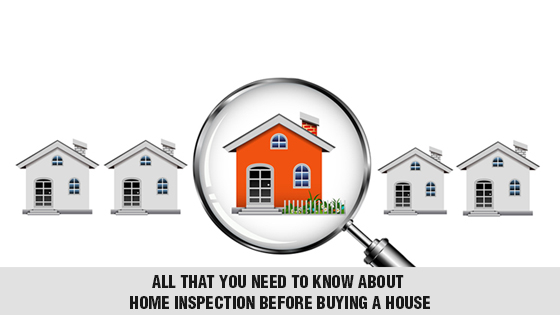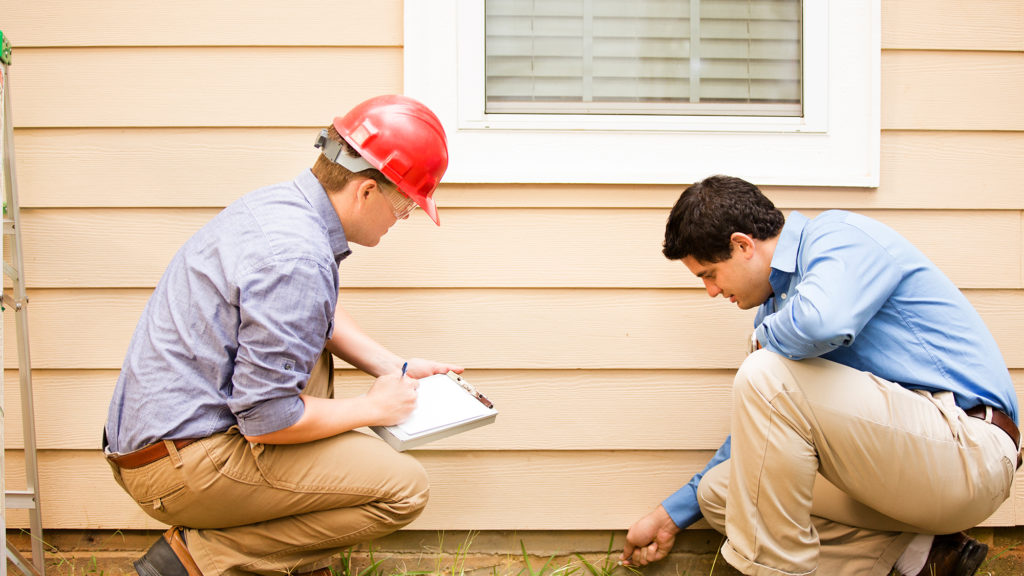Buying a new home can be troublesome, especially if you’re moving into your first home. That’s what makes the home inspection such an important part of the process.
This gives you everything you need to know about your house inspection. It provides a comprehensive home inspection checklist for home buyers so you know everything you need to know before signing off on the purchase. A professional home inspection is a comprehensive look at your potential home and property, and it’s an essential step in the home-buying process. A certified home inspector will walk through the steps outlined in the home inspection checklist below, and they will prepare a full report on all their findings
Before making an offer for a house, you should start getting ready for professional inspections. This will give you ideas on what on which areas you want the inspector to pay special attention to. The inspector should address the issues in the report that will be given to you at the end of the inspection. If any of the items will not be covered by the inspectors, ask the inspector the reason for not including them.

- Foundation – The stability of the home largely depends on the foundation. Any cracks or issues with the foundation may hamper the structural integrity of the house. Check the walls and ceiling in each room of the house and do the same thing outside. Look for any cracks or shifts in the foundation. Check also if trees are encroaching on the foundation.
- Lot – Check the lot where the house stands. Check also for any soggy areas on the lot as they could be signs of leaking pipes. Many homes may look good but there are hidden drainage issues that will be costly to repair. Drainage issues could also result in standing water that may cause damage over time. Many lawns do not have an adequate slope that prohibits the flow of water into the street drain. If the drainage problems are associated with the city’s sewer lines, they will be expensive to resolve.
- Roof – Do an inspection of the condition of the roof and estimate how many more years it will last. Remember that replacing the roof is a very expensive endeavour. If the roof needs immediate replacement, negotiate with the real estate agent to have the seller or company replace it before the purchase or you may also ask for a price reduction to cover your expenses fixing the roof.
- Exterior – Have the inspectors check the exterior of the home to find out if repairs or repainting needs to be done. Buyers should check for gutters and downspouts that have been detached, loose boards, or the wires that are dangling.
- Buyers should look at the attic for structural integrity and signs of leaks.
- Check the ceilings and around the windows of each room for air leaks. If there is any, it will affect the heating and cooling of the home. You can have additional windows placed, but this will be expensive on the part of the buyers.
- Basement – Find out if there are signs of dampness in the basement. Check also for insulation.
- Electrical – Check if the electrical system is very old, which means it is vulnerable to many problems. Find out if the breaker boxes and the power outlets conform to the standards of the National Electrical Code. Be careful when checking the electrical system of the home as it could be very dangerous when not handled properly.
- Plumbing – Before buying a house, it is important to check if there are plumbing issues that will require a lot of money to repair. Plumbing issues may also be reasons why the bank will not issue a loan so be sure to include them in the inspection report and checklist.

A home inspection is a very important steps of buying a home in Maryland. It is your chance to review any issues with the property so you can negotiate with the seller about who is responsible for fixing them.
Home inspection in Maryland reassures you that the home you are intending to purchase is what you expected it to be.
A home inspection in Maryland will provide you with a list of issues that you want to negotiate with the seller to fix or a catastrophic thing that will let you back out of the deal. The inspection report makes a full-report of something like a new manual to the homebuyer, including maintenance tips and schedules you should adhere to.
You and your real estate agent & seller’s agent in the home for sale should be present with the inspectors during the inspections. A home inspection takes time and it will not be to your benefit if the inspector will rush the work. It might result in some overlooked problems
The inspector will make the final reports, together with pictures but being there during inspections day will a lot helpful as he can personally explain to you the problem, instead of just reading it in the reports and looking at the attached pictures.
With any type of problem in the home inspection checklist, you have a few options being a potential home buyer:
- Don’t fix it immediately. Instead, wait until the house is yours and repair it your preferred way on your own dime.
- Ask the seller if you can fix the problem before they sell the house to you (not recommended).
- Ask the seller to pay for and fix the problem before the house is sold.
- Renegotiate the purchase price of the house based on the amount it takes to fix the problem.
- Walk away from the house because the problem is too worrisome or significant to fix.
